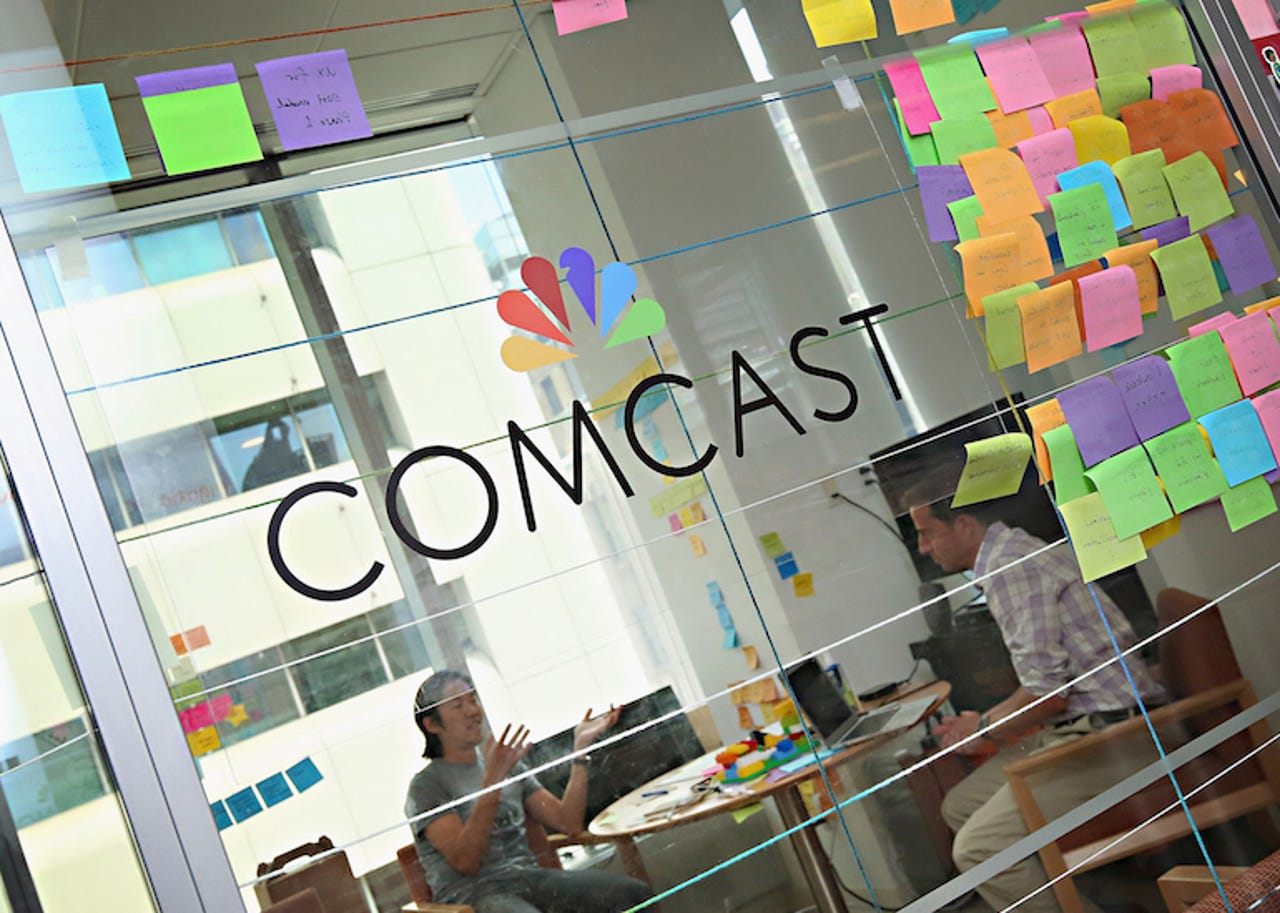Comcast 'blocks' an encrypted email service: Yet another reminder why net neutrality matters


(Image: file photo)
For about twelve hours earlier this month, encrypted email service Tutanota seemed to fall off the face of the internet for Comcast customers.
Starting in the afternoon on March 1, people weren't sure if the site was offline or if it had been attacked. Reddit threads speculated about the outage. Some said that Comcast was actively blocking the site, while others dismissed the claims altogether. Several tweets alerted the Hanover, Germany-based encrypted messaging provider to the alleged blockade, which showed a "connection timed out" message to Comcast users.
It was as if to hundreds of Comcast customers, Tutanota didn't exist.
But as soon as users switched to another non-Comcast internet connection, the site appeared as normal
"To us, this came as a total surprise," said Matthias Pfau, co-founder of Tutanota, in an email.
"It was quite a shock as such an outage shows the immense power [internet providers] are having over our Internet when they can block sites...without having to justify their action in any way," he said.
By March 2, the site was back, but the encrypted email provider was none the wiser to the apparent blockade. The company contacted Comcast for answers, but did not receive a reply.
When contacted, a Comcast spokesperson couldn't say why the site was blocked -- or even if the internet and cable giant was behind it. According to a spokesperson, engineers investigated the apparent outage but found there was no evidence of a connection breakage between Comcast and Tutanota. The company keeps records of issues that trigger incidents -- but found nothing to suggest an issue. The spokesperson did not want to speculate further.
It's not the first time Comcast customers have been blocked from accessing popular sites. Last year, the company purposefully blocked access to internet behemoth Archive.org for more than 13 hours.
In recent weeks, there have been several more site blocking issues.
Even as recently as earlier this month, customers said Comcast's so-called "protected browsing" was blocking access to everyday websites, like Steam and PayPal, which the internet giant flagged as "dangerous." Not every customer faced the same issue; the protected browsing isn't enabled by default.
For Pfau, the reason behind Tutanota's apparent blockade remains a mystery.
"It doesn't really matter if it was a purposeful block or a technical glitch," said Pfau. He argued that the net neutrality repeal will "harm competition immensely" not just in the US, but also further afield -- like Europe, which already has strict net neutrality laws in place.
MORE ON NET NEUTRALITY
"Such a scenario would be extremely devastating for European services and start-ups as they would not have a fair chance on the American market in the first place," he said. "That's why the American fight for net neutrality is so important -- even for us here in Europe."
Although the Federal Communication Commission's repeal of Obama-era net neutrality rules won't come into effect until April 23, nobody's quite sure what that post-net neutrality world will look like.
Those net neutrality rules were designed to ensure that every bit of internet traffic is treated equally, regardless of where it's coming from and where it's going to. Without those rules, a major concern is that internet providers with their own television, radio, and news content can and will arbitrarily slow down access or prevent their customers altogether from accessing rival services -- unless they pay more.
But it's troubling, just a few months after the net neutrality rules were repealed, to see internet providers with arbitrary control over what customers can see and access -- even if the blocking is a mistake or a false positive. It's bad enough when it's a major website, but it looks worse when the block affects a company like Tutanota, a privacy-focused email provider, which could be seen as a direct competitor to Comcast's own email offerings.
Pfau said the end of net net neutrality can be "devastating" for online freedoms.
"The worst about this form of censorship is that ISPs will not have to justify their decision," he said. "They can include or exclude any service from their bundles without having to explain why."
"They can more or less decide what services their customers use," he added.
Comcast, for its part, has said in a pledge made on its website that, "we do not block, slow down, or discriminate" against lawful content. Ars Technica noted however that the company did not say it "won't" block or slow down content in the future.
So far, individual states have hit back at the net neutrality repeal effort by bringing their own state-level laws into effect, mandating that communications providers treat the internet like any other utility service -- like water, gas, and electricity.
Washington state is the first to bring laws into effect, with New York and Montana seen as likely contenders to be next in line.
But with some members of Congress still scrambling to override the FCC's net neutrality repeal, it's unclear if lawmakers can introduce and pass legislation in time before the April 23 deadline.